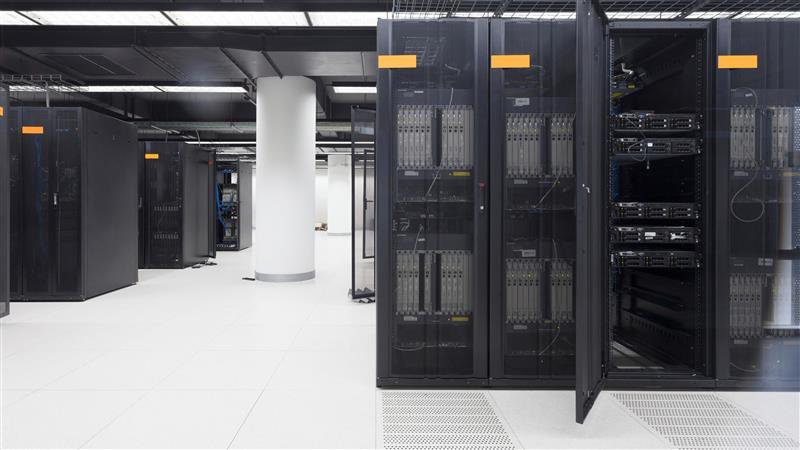Across the data center landscape, the pressure to scale is intensifying, especially for small and mid-sized co-location (Colo) providers. Traditionally operating one to five multi-tenant sites, these providers are now being asked to grow like never before. With rising demand for AI computing capacity and increased investment from private equity firms, even the most modest operators are being pushed to develop large-scale campuses rapidly.
This rapid transformation presents a unique set of challenges. Unlike hyperscale, single-tenant colocation facilities, where specifications are locked in by major cloud providers, multi-tenant Colo providers operate in a much more dynamic and fragmented environment. These facilities are constantly adapting to customer turnover, tenant-specific equipment requirements, and legacy systems that were never designed to scale at today’s pace.
This situation is like a condo development where every unit has a different owner. You don’t have one tenant dictating the infrastructure. You have hundreds, each with different needs and expectations.
As these smaller players evolve from localized facilities to campus-scale operations, they face mounting complexity, especially when it comes to building management, infrastructure standardization, cybersecurity and system integration. The stakes are high. Time-to-market delays, inefficient operations, and security vulnerabilities can all threaten their ability to compete in a market that’s moving faster than ever.
This blog explores five key challenges facing co-location providers as they scale, and how Rockwell Automation is helping them navigate this period of accelerated growth with flexible, future-ready solutions.
Challenge 1: Building Automation & Management Systems
As data center co-location providers scale, one of their most pressing infrastructure challenges is integrating their Building Automation Systems (BAS). Many rely on solutions from leading OEMs, but these systems often operate in silos, limiting operational visibility and flexibility.
This lack of integration can result in fragmented data, slower response times, and increased risk as facilities grow more complex. Colo providers need a way to unify these systems without starting from scratch.
This is where Rockwell Automation offers a clear advantage. Rockwell Automation’s approach is vendor-agnostic and scalable, meaning they integrate with a customer’s existing BAS, Building Management Systems (BMS) and Electrical Power Monitoring Systems (EPMS) infrastructure. No “rip and replace” required. This preserves what’s already working well while expanding capabilities where needed. Colo providers don’t have to replace another vendor’s system just because they need something better. Rockwell Automation solutions are downward and upward compatible. This flexibility helps protect a provider’s existing investment while opening up a path to growth.
By avoiding a complete system overhaul, Colo providers protect their time-to-market deadlines. They reduce risk, help protect their ROI, and minimize downtime during upgrades. They also retain the institutional knowledge that their teams have developed on current platforms, which shortens learning curves and accelerates adoption of new capabilities.
In short, Rockwell Automation helps Colo providers future-proof their operations by enabling smart, integrated control across building and electrical systems, without locking them into a proprietary ecosystem.
Challenge 2: Industrial vs. Commercial-Grade Components
Scaling data center operations is about adding more servers or space, but it's also about choosing the right infrastructure components. Yet many co-location providers still rely on commercial-grade hardware to support critical systems like power distribution and environmental control. These components often fall short in terms of durability and reliability, putting uptime at risk. And in the data center world, uptime isn’t negotiable.
While servers and IT equipment naturally cycle out every three to four years due to technology refreshes, much of the electrical and utility infrastructure should not be refreshed on that same schedule. In fact, systems like electrical distribution, cooling control, and backup power should match the life expectancy of the facility itself.
This is where Rockwell Automation industrial-grade components stand apart. Built for harsh, high-demand environments like oil and gas, automotive and manufacturing, Rockwell Automation hardware is engineered for long life, high reliability and minimal maintenance. And it’s proven, backed by decades of real-world performance in mission-critical applications.
Rockwell Automation’s industrial-grade solutions have been operating for decades in rugged conditions far harsher than any data center will ever face. So, for a facility that absolutely cannot go down, it makes sense to apply that same level of industrial durability.
By switching to industrial-grade solutions, Colo providers reduce long-term maintenance costs, minimize the risk of failure and align their infrastructure lifecycle with that of the building, supporting scalable growth with zero compromise on uptime.
Challenge 3: Cybersecurity and Defense in Depth Strategy
With the rise of AI workloads and cloud-based services, cybersecurity has become a front-and-center issue for co-location providers. As customers entrust Colos with their most sensitive data and proprietary models, the expectation for cyber resilience is higher than ever. A breach threatens infrastructure, not to mention business continuity, brand reputation, and customer trust, and impacts financial SLAs.
Recent events are a wake-up call. In 2025, for example, there was a security breach at a colocation facility in Germany hosting a global financial institution. The breach wasn’t in the latest AI tech, but a legacy system. The breach occurred in the same facility that houses the customer’s AI stack but only took a single edge location device to bring operations down for six hours.
This incident underscores a broader issue. Cyberattacks aren’t always aimed at the most advanced systems. Often, they target overlooked vulnerabilities in supporting infrastructure. That’s why a defense in depth strategy is critical. Co-location providers must think beyond firewalls and endpoint protection. They need industrial-grade automation and control solutions that embed cybersecurity at the system level.
Rockwell Automation brings proven experience from critical infrastructure sectors where cyber resilience is non-negotiable. Our industrial control systems are built with integrated security features that support zero-trust architectures, secure remote access, and hardened communication protocols.
The value isn’t just in helping prevent breaches. It’s in making smarter infrastructure decisions today that reduce risk over the long-haul. Colo providers are realizing that delaying the decision to upgrade their control systems is, in fact, a decision, one with consequences.
While legal liability for a breach may be unclear, the business risk is real. A single vulnerability can ripple through an entire operation. That’s why cybersecurity isn’t a siloed issue. It’s part of a broader resilience strategy that touches every layer of a data center’s design.
By implementing Rockwell Automation’s industrial-grade solutions, Colo providers take an additional proactive approach to protecting customer data, delivering operational uptime, and building infrastructure that is as secure as it is scalable.
Challenge 4: Data Visibility & Single Pane of Glass Monitoring
Traditional Colos were built for many clients. Today’s Colos are being built for single tenant clients. This means Colos must still evolve with end-user requirements to stay relevant as hosts for high-end end users.
Over time, this leads to a fractured environment where monitoring and visibility become a major challenge. It’s like broken safety glass. Each piece of equipment, whether switchgear, cooling or power distribution, has its own landing page or IP address. They all offer a user interface, but none of them talk to each other.
This fragmentation makes it hard for operators to see the full picture. Instead of a unified dashboard, they’re juggling dozens of separate systems. And with more IP-addressable devices, from the utility space to the IT racks, visibility gets even more complicated.
This is why co-location providers are increasingly looking for a single pane of glass solution: one interface that aggregates all their critical data into a single, centralized view.
Rockwell Automation delivers just that with FactoryTalk® Optix™, a flexible, scalable software platform that collects and visualizes data from across a facility’s infrastructure, regardless of vendor or device. Whether it’s power consumption, cooling performance, or system status, Optix gives operators real-time, consolidated insight into their operations.
Rockwell Automation solutions pull data from the lowest level (device-level tags) and delivers it in a format that’s customizable and digestible. Customers choose whether they want to push that data to the cloud, keep it on-prem, or integrate it with other enterprise systems.
The result is improved operational efficiency, faster diagnostics, and better-informed decision-making. Instead of reacting to challenges in isolation, co-location providers can anticipate and manage issues holistically, with full confidence in the data behind their actions.
For small but growing Colo providers, this centralized monitoring is a competitive edge.
Challenge 5: Time to Market
For co-location providers, scaling quickly is a necessity. But even when project timelines are clearly defined and deployment steps are mapped out in detail, delays are still common. These delays often have little to do with internal readiness and more to do with a complex web of external factors.
Over the past two years, the data center industry has experienced more disruption than the previous two decades combined. Global supply chain volatility, shifting technology roadmaps and inconsistent standards have made it harder than ever to meet go-live dates with confidence. Add in the growing trend toward modular deployments and off-site manufacturing, and the challenge becomes one of seamless integration.
Time to market is where all of this comes together or falls apart. You can have the perfect design and a detailed schedule, but everything slows down if a component is delayed or a module doesn’t integrate cleanly. This is where Rockwell Automation’s partner ecosystem becomes a game-changer.
While Rockwell Automation doesn’t directly deploy infrastructure, the company works closely with a broad network of distributors, system integrators, EPCs and consultants. These ecosystem partners are the force multipliers that help co-location providers move from concept to commissioning.
Rockwell Automation’s ecosystem partners are essential to helping its customers execute. They bring local knowledge, specialized expertise, and on-the-ground support to accelerate every step of the buildout process.
By aligning with Rockwell Automation and its deployment partners, co-location providers gain access to standardized solutions, faster component availability, and integration strategies that reduce friction at every phase. This reduces costly delays and helps new capacity come online on time and on budget.
In a market where speed is a competitive differentiator, Rockwell Automation’s combination of industrial-grade technology and trusted ecosystem partnerships delivers the edge that data center providers must scale efficiently.
Scaling Smarter, Not Just Faster
As demand for data center capacity surges, small and mid-sized co-location providers are under pressure to scale at speeds once reserved for hyperscalers. But rapid growth comes with real-world complexity, from integrating legacy infrastructure to securing operations against evolving cyber threats. To succeed, these providers need more than just hardware. They need scalable, future-ready solutions and a partner who understands the unique demands of the data center landscape.
Rockwell Automation is that partner. With industrial-grade technology, vendor-agnostic integration, a single-pane-of-glass software platform, and a trusted ecosystem of deployment experts, we’re helping co-location providers grow smarter without compromising performance, security or uptime.
Let’s Talk
If you’re planning to scale your co-location operations, let’s start the conversation. Contact a Rockwell Automation expert to explore how can help you meet today’s challenges—and prepare for tomorrow’s demands.

